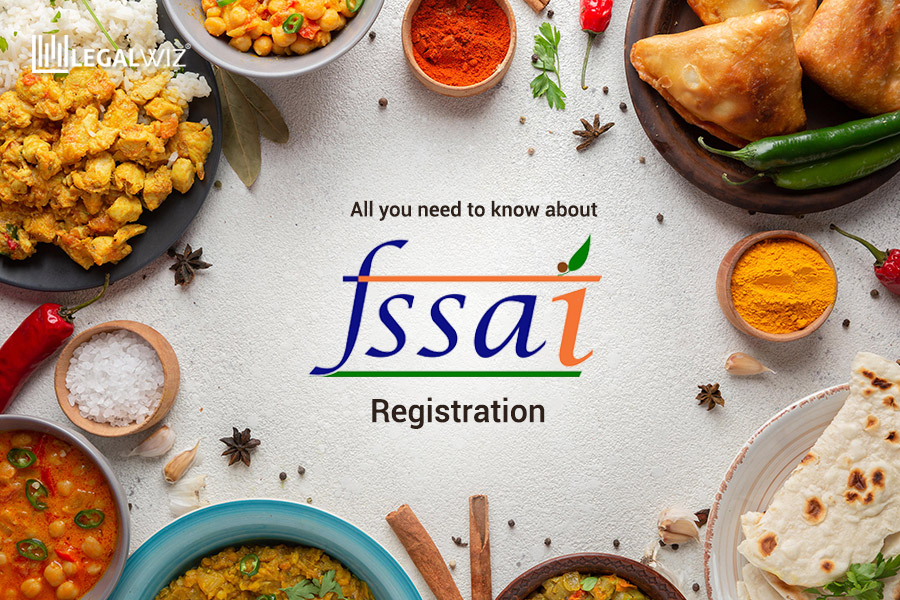
According to government mandate, all the FBOs (food business operators) require an FSSAI registration to operate in India. The FSSAI handles the food items’ quality sold in India.
Over the years, the FSSAI has been helping in raising the comprehensive standards of food items sold and marketed. One can conduct an online FSSAI registration process as well to comply business norms.
The FSSAI license categories factors in turnover, size, and food categories. Here is all you need to know about the FSSAI registration process and license categories.
Defining the FSSAI.
The FSSAI is the autonomous body that discharges its duty under the Ministry of health and family welfare. This subsidiary of the government of India helps to protect and promulgate public health via stringent policies, rules and regulations. Likewise, the organization works under the purview of the Food safety and standards Act, 2006. It includes various laws concerning the food industry. Thus, the Act is responsible for establishing science and research-driven standards for food manufacturing and storage.
Defining the FSSAI registration certificate.
All the FBOs that work within India need to acquire an FSSAI registration certificate before they initiate operations. This license acts as the permit for food business operations.
Here are the food-related businesses that should register under any one of the FSSAI license categories;
– Food trading businesses like retailers and wholesalers.
– Food manufacturing companies.
– Eateries, street food vendors and dhabas.
– Hotels, restaurants, caterers and canteen.
– Importers of food products.
– Grocery shops.
– Exporters of food products.
– Dairy farms products.
– Home-based food businesses.
– Food transporters, processors, packers, distributors, and labellers.
These businesses need to acquire 14-digit FSSAI license numbers before initiating business operations compulsorily.
FSSAI license types.
There are primarily three types of FSSAI licenses.
FSSAI basic license or registration – it is for those businesses whose turnover is below Rs. 12 lacs.
State FSSAI license – it is for those businesses whose annual turnover is between Rs. 12 lacs to Rs. 20 crores.
Central FSSAI license – it is for those businesses whose turnover is more than Rs. 20 crores.
Let us now look into what businesses can apply for these licenses according to FSSAI guidelines.
FSSAI registration through form A.
– Small vendors, hawkers, retailers, and stallholders.
– Small scale food manufacturing industries whose annual turnover is below Rs. 12 lacs.
– Businesses that disperse food at the social or religious congregation.
– Businesses whose production capacity is below 100 kilograms or litre per day.
– Slaughtering houses whose maximum capacity is two large, ten small animals or 50 birds per day.
– Dairy farms whose milk collection and handling capacity is below 500 litres per day.
– Retailers with limited operations as it is one of the essentials of starting a food business.
State FSSAI license through form B.
– Proprietary food manufacturers.
– Retailers, restaurants, suppliers, hotels, establishments, and distributors whose annual turnover is between Rs. 12 lacs and Rs. 20 crores.
– Dairy farms’ whole milk collection and handling capacity is between 500 to 50000 litres per day.
– Businesses whose production capacity is more than 100 kilogram or litres and less than two metric tons per day.
– Slaughtering house whose capacity is between two to fifty large animals, 10 to 150 small animals, or 50 to 1000 birds per day.
– Storage units whose capacity is below 50000 metric tons.
– Hotels with a maximum rating of 4 stars.
Central FSSAI license through form B.
– Fully export and import-oriented businesses.
– Retailers, restaurants, hotels, suppliers, and establishments whose annual turnover is more than Rs. 20 crores.
– Businesses whose production capacity is more than two metric tons per day.
– Operators who have business in more than one state.
– Slaughtering houses whose capacity is more than 50 large animals, 150 small animals, or 1000 birds per day.
– Dairy farms whose milk collection and handling capacity is more than 50000 litres per day.
– Wholesalers whose annual turnover is more than Rs. 30 crores.
– Storage units whose capacity is more than 50000 metric tons.
– Businesses that operate under government agencies like railways, defence, seaports, airports, and airlines.
– Hotels with a rating of 5 stars or more.
– All the packaging, processing, and relabelling units whose capacity is more than two metric tons per day.
Required documents.
– Applicant’s photograph.
– FBO’s identity and address proof.
– NOC from the local governing body, like panchayat or municipality.
– Local health department’s NOC.
– Application form A and B.
– List of partners and directors with their address and ID proof, and contact details.
– Evidence for possession of business premises.
– Declaration form.
– NOC from a manufacturer for re-labellers and re-packers.
– Business incorporation certificate.
– Milk, water and raw material sources.
– System plan of food safety management.
– Certificate from the Ministry of tourism for hotels.
– Form 9 with board resolution.
For processing units and manufacturers.
– Authority letter, if necessary.
– Water analysis report.
– List of food categories.
– Blueprint of the unit.
– List of equipment used along with installation capacity.
FSSAI license remains valid for up to 1 to 5 years. Now, as you know the significance of licensing under FSSAI, you should not delay the process to obtain the FSSAI license.

